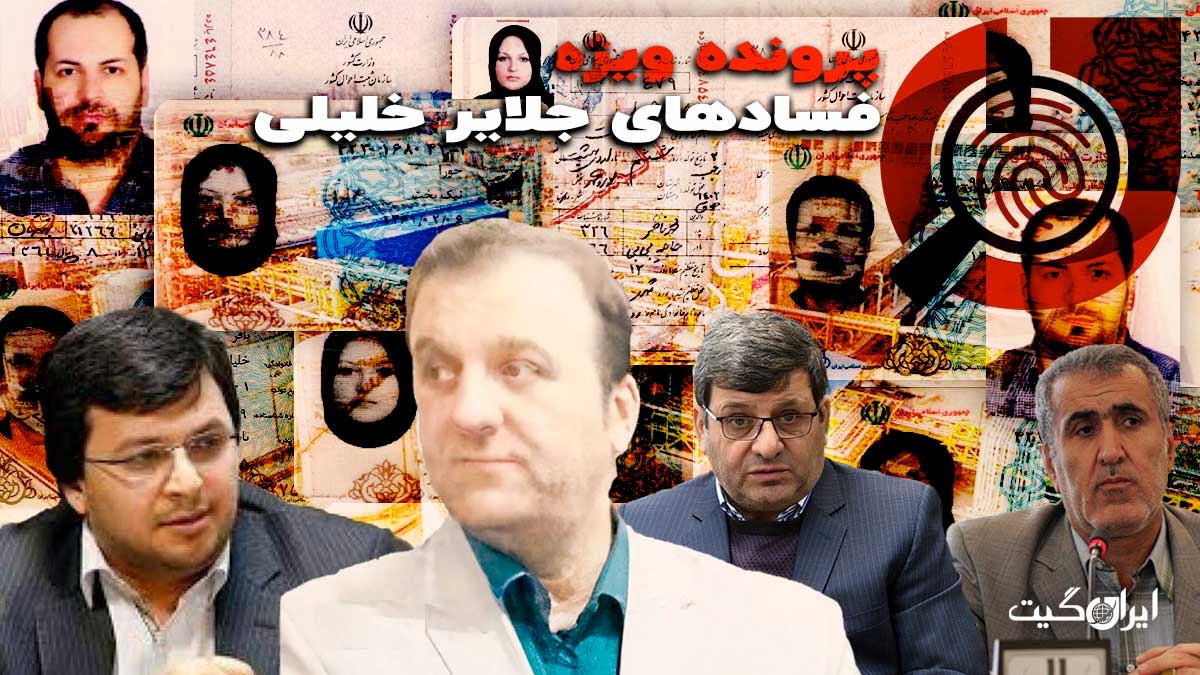Unwanted Neighbor in Evin: What Became of Spy Partner Jalayer Khalili
Unwanted Neighbor in Evin: According to Iran Gate, Jalayer Khalili, who was a partner and friend of Farhad Abd-Saleh, quickly took ownership of his company by forging signatures when he was arrested. This report is about what happened to Farhad Abd-Saleh.
In November 2015, after the Supreme Leader of the Islamic Republic spoke about the issue of infiltration, it became a pretext for the IRGC Intelligence Organization to showcase its obedience and speed to its rival, the Ministry of Intelligence, by defining a constructed project.
In this case, not only was the Secretariat of the Supreme National Security Council not in agreement with the IRGC Intelligence, but the Ministry of Intelligence was also not supportive. However, due to the opposition or rather the assistance of the IRGC Intelligence with the established government of Rouhani and the dependency of two other security agencies on the government, naturally, they did not heed this opposition and proceeded with their plans. But the story I am telling you has no connection to our case, the infiltration project, or the handling of journalist defendants.
The subject under discussion is the simultaneous occurrence of the infiltration case and the arrest of several journalists with the case of the missing oil rig during Ahmadinejad’s government and the arrest of several major economic defendants, who were compelled to become neighbors and housemates in solitary cells and later in the general detention of Ward 2A.
However, the subject of this report is a man named Farhad Abd-Saleh, about 43 years old, of average height, with thick curly hair and a sturdy build. What was interesting to me and other cellmates about Abd-Saleh was his good spirit during solitary confinement and his often childish methods to gain the trust of interrogators and ward guards. Of course, these behaviors sometimes created self-made traps for Farhad, in which he would get caught.
I remember that Abd-Saleh, to prove his righteousness to the detention guard or interrogator, tried to loudly recite simple verses or well-known prayers, which, due to Farhad’s unsuitable voice, caused noise pollution and disturbed other neighbors. But once, it caused a problem for Abd-Saleh himself in the interrogation room.
Those who, for any reason, have experienced detention by the IRGC and spent interrogation days in Ward 2A know that the interrogation rooms are in one building and next to each other, and the sound from other rooms is easily heard in the adjacent room. One day, when I was busy filling out interrogation forms in the blue and glass room, I heard that our shared interrogator, a burly man with a loud voice and disrespectful tone, went to the next room and asked Farhad to loudly recite the ‘Du’a Faraj’. Farhad Abd-Saleh, who at that moment was either in shock or had just heard the name of the ‘Du’a Faraj’, was in a bad predicament.
The interrogator, very pleased with this cleverness and catching him off guard, said with a mocking tone, ‘Man, this prayer is read every day from the first day of school to the end of high school and is broadcast on TV daily, and you don’t even know its name, yet you loudly recite the Quran for me. Get up, hypocrite, liar, you should have been interrogated from the start. It’s unclear how much impurity was in your responses.’
Interestingly, to escape the long solitary confinement he was trapped in for about three months until December 2015, Farhad chose another approach, which was complete cooperation and obedience. Unfortunately for Abd-Saleh, the interrogator took full advantage of this and forced Farhad in a long session to demonstrate with his body how he had been intimate with the women he had relationships with. This behavior of the interrogator was so vile and harassing that I felt vicarious shame from another room in the interrogation building.
But he did this to put pressure on Farhad to obtain important names in the case, which he succeeded in doing, and by reaching the name of Ataollah Mohajerani’s son, the former Minister of Guidance, he was able to arrest him as well and link the case to significant names in the opposing political front. The only strange thing about Abd-Saleh was his thanking after each round of interrogation, which once even made the interrogator laugh, and I never understood after all those inhumane, violent, and humiliating behaviors what this humble gratitude was for.
What I and other cellmates in the general Ward 2A concluded was that although Abd-Saleh himself was anonymous, he was a black box of big names and had hosted and welcomed these influential people from New York to Dubai.
What allowed me to hear about his interrogation process was the motivated shared interrogator who, in the last days of my case when I was waiting for bail, left me alone with a pile of blank papers and went to the next room to make something out of Farhad Abd-Saleh for which god only knows.

